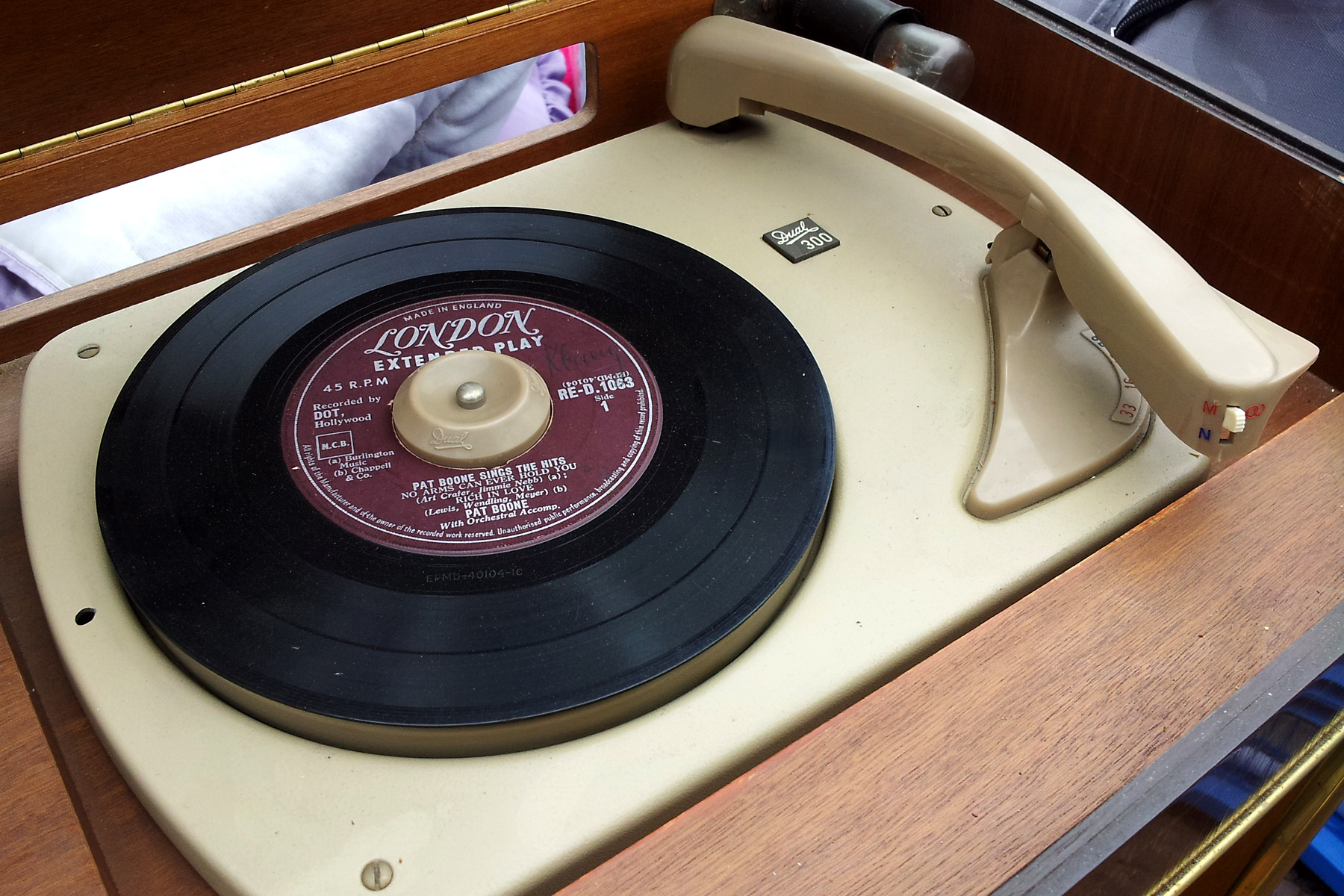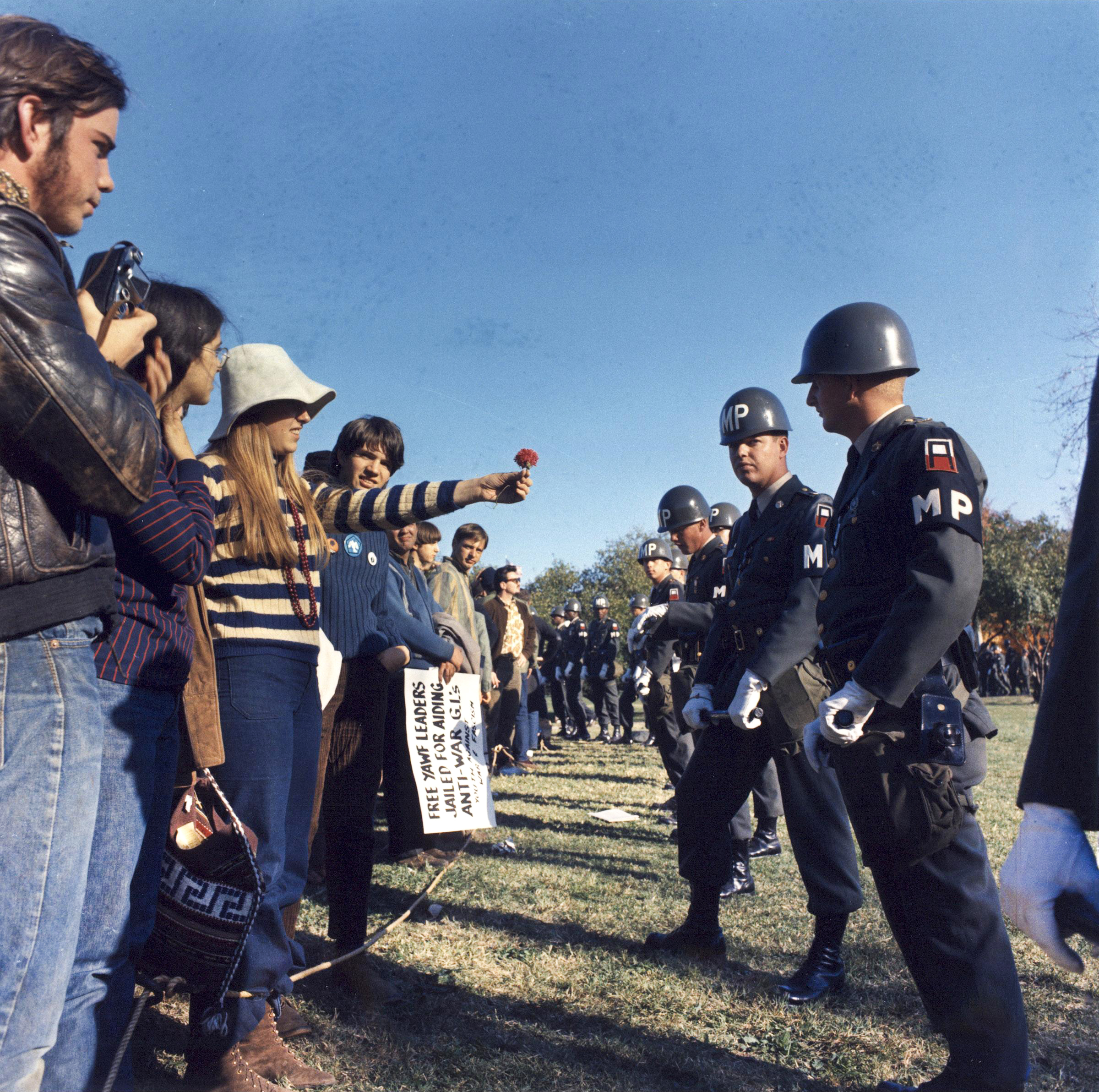|
Rok Mašina (album)
''Rok Mašina'' (trans. ''Rock Machine'') is the 1981 debut and the only full-length studio album from Yugoslav hard rock and heavy metal band Rok Mašina. Background Rok Mašina was formed in 1980 by former Pop Mašina members Robert Nemeček (vocals and bass guitar) and brothers Zoran and Vidoja Božinović (guitars), with Vladan Dokić (drums). With Rok Mašina, Nemeček and the Božinović brothers turned towards heavier, less complex sound than Pop Mašina's progressive/hard rock sound with blues, psychedelic and acid rock elements. The band's debut album was recorded during June 1981 in Studio MS in Belgrade. Part of the album lyrics were written by Dragana Stanaćev and Koviljka Milić, actresses of the Teatar Levo (''Left Theatre'') theatre, and the album featured Ljuba Ninković (formerly of S Vremena Na Vreme) and Dragan Popović (formerly of DAG) on backing vocals. The album was produced by Nemeček. It featured new versions of the songs "Vatra" and "Bilo mi je bolje ... [...More Info...] [...Related Items...] OR: [Wikipedia] [Google] [Baidu] |
Album
An album is a collection of audio recordings (e.g., music) issued on a medium such as compact disc (CD), Phonograph record, vinyl (record), audio tape (like 8-track cartridge, 8-track or Cassette tape, cassette), or digital distribution, digital. Albums of recorded sound were developed in the early 20th century as individual 78 rpm records (78s) collected in a bound book resembling a photo album; this format evolved after 1948 into single vinyl LP record, long-playing (LP) records played at rpm. The album was the dominant form of recorded music expression and consumption from the mid-1960s to the early 21st century, a period known as the ''album era''. Vinyl LPs are still issued, though album sales in the 21st-century have mostly focused on CD and MP3 formats. The 8-track tape was the first tape format widely used alongside vinyl from 1965 until being phased out by 1983, being gradually supplanted by the cassette tape throughout the 1970s and early 1980s; the popul ... [...More Info...] [...Related Items...] OR: [Wikipedia] [Google] [Baidu] |
Blues Rock
Blues rock is a fusion music genre, genre and form of rock music, rock and blues music that relies on the chords/scales and instrumental improvisation of blues. It is mostly an electric ensemble-style music with instrumentation similar to electric blues and rock (electric guitar, electric bass guitar, drums, and sometimes with keyboards and harmonica). From its beginnings in the early to mid-1960s, blues rock has gone through several stylistic shifts and along the way it inspired and influenced hard rock, Southern rock, and early heavy metal music, heavy metal. Blues rock started with rock musicians in the United Kingdom and the United States performing American blues songs. They typically recreated electric Chicago blues songs, such as those by Willie Dixon, Muddy Waters, and Jimmy Reed, at faster tempos and with a more aggressive sound common to rock. In the UK, the style was popularized by groups such as the Rolling Stones, the Yardbirds, and the Animals, who put several blues ... [...More Info...] [...Related Items...] OR: [Wikipedia] [Google] [Baidu] |
Jugoslav Vlahović
Jugoslav Vlahović ( sr-cyr, Југослав Влаховић; born 17 March 1949) is a Serbian and Yugoslav visual artist, caricaturist, illustrator, graphic designer, photographer, art educator and retired rock musician. Vlahović is best known for his caricatures published in various publications, his work as an album cover An album cover (also referred to as album art) is the front packaging art of a commercially released album, studio album or other audio recordings. The term can refer to: * the printed paperboard covers typically used to package: ** sets of a ... designer—of his album cover designs the best known are the ones for the band Riblja Čorba—and as a former member of the rock band Porodična Manufaktura Crnog Hleba. Since 1997, he has been a professor at the Belgrade Faculty of Applied Arts, where he currently teaches book graphics. Biography Early biography Vlahović was born in Belgrade in 1949. He graduated at the Second Belgrade Highsch ... [...More Info...] [...Related Items...] OR: [Wikipedia] [Google] [Baidu] |
Mini-album
A mini-LP or mini-album is a short record album or LP, usually retailing at a lower price than an album that would be considered full-length. It is distinct from an EP due to containing more tracks and a slightly longer running length. A mini-LP is not to be confused with the Japanese CDs issued in a " mini LP sleeve" or "paper jacket". Its running time is shorter than the typical album but longer than a single album. It is sometimes synonymous with extended play, especially in East Asia music market. However, some music distributors may classify mini albums with 7 or more songs as an album. In the United States, The Recording Academy's rules for Grammy Awards state that an album must comprise a minimum total playing time of 15 minutes with at least five distinct tracks or a minimum total playing time of 30 minutes with no minimum track requirement. In the United Kingdom, the criteria for the UK Albums Chart is that a recording counts as an "album" if it either has more than ... [...More Info...] [...Related Items...] OR: [Wikipedia] [Google] [Baidu] |
New Wave Music In Yugoslavia
New wave in Yugoslavia ( sr-Cyrl-Latn, Нови талас, Novi talas; ; ; ) was the new wave music scene of the Socialist Federal Republic of Yugoslavia. As its counterparts, the British and the American new wave, from which the main influences came, the Yugoslav scene was also closely related to punk rock, ska, reggae, 2 tone, power pop and mod revival. Some of its acts are also counted as belonging to the Yugoslav punk scene which already existed prior to new wave. Such artists were labeled as both punk rock and new wave (the term "new wave" was initially interchangeable with "punk"). Overview The new wave scene in Yugoslavia emerged in the late 1970s and had a significant impact on the Yugoslav culture. The Yugoslav rock scene in general, including the freshly arrived new wave music, was socially accepted, well developed and covered in the media. New wave was especially advocated by the magazines ''Polet'' from Zagreb and '' Džuboks'' from Belgrade, as well as the TV sho ... [...More Info...] [...Related Items...] OR: [Wikipedia] [Google] [Baidu] |
Generacija 5
Generacija 5 ( sr-Cyrl, Генерација 5; trans. ''Generation 5'') is a Serbian and Yugoslav rock band formed in Belgrade in 1977. The mainstay members of the band are keyboardist and band leader Dragoljub Ilić and guitarist Dragan Jovanović. At the beginning of their career the band performed jazz rock. With the arrival of vocalist Goran Milošević, the band moved to hard rock, releasing a number of hits during the late 1970s and early 1980s, disbanding in 1982. In 1985, former members of the band played a pivotal role in YU Rock Misija, the Yugoslav contribution to Live Aid. The band reunited in 1982, releasing two studio albums since. Band history 1977–1982 Generacija 5 was officially formed on 1 July 1977, by Dragoljub "Dragan" Ilić (a former Korak member, keyboards), Jovan Rašić (a former Zlatni Prsti member, vocals), Dragan "Krle" Jovanović (a former Zdravo member, guitar), Dušan "Duda" Petrović (a former Pop Mašina member, bass guitar) and Slobodan ... [...More Info...] [...Related Items...] OR: [Wikipedia] [Google] [Baidu] |
7-inch
In music, a single is a type of release of a song recording of fewer tracks than an album ( LP), typically one or two tracks. A single can be released for sale to the public in a variety of physical or digital formats. Singles may be standalone tracks or connected to an artist's album, and in the latter case would often have at least one single release before the album itself, called lead singles. The single was defined in the mid-20th century with the ''45'' (named after its speed in revolutions per minute), a type of 7-inch sized vinyl record containing an A-side and a B-side, i.e. one song on each side. The single format was highly influential in pop music and the early days of rock and roll, and it was the format used for jukeboxes and preferred by younger populations in the 1950s and 1960s. Singles in digital form became very popular in the 2000s. Distinctions for what makes a ''single'' have become more tenuous since: the biggest digital music distributor, the iTun ... [...More Info...] [...Related Items...] OR: [Wikipedia] [Google] [Baidu] |
DAG (Yugoslav Band)
DAG ( sr-cyr, ДАГ), also known as Trio DAG (Трио ДАГ) were a Yugoslav rock band formed in Belgrade in 1972. Although short-lasting, they were one of the most notable representatives of the Yugoslav acoustic rock scene. The band consisted of Dragan Popović (guitar, vocals) and brothers Grujica (percussion, vocals) and Aleksandar Milanović (guitar, vocals). Initially, the band performed acoustic music, but on the recording of their only studio album, ''Sećanja'' (1974), they played electric instruments. The album, featuring poetic lyrics written by lyricist Marina Tucaković, was praised by the critics, but saw little commercial success, and Popović left the band, DAG ending their activity soon after. History 1972-1975 The band was formed in 1972 as an acoustic trio consisting of Dragan Popović (guitar, vocals), and brothers Grujica (percussion, vocals) and Aleksandar Milanović (guitar, vocals). They named the band after the initials of their first names (Dragan, Al ... [...More Info...] [...Related Items...] OR: [Wikipedia] [Google] [Baidu] |
S Vremena Na Vreme
S Vremena Na Vreme ( sr-Cyrl, С Времена На Време, trans. ''From Time To Time'') was a Serbian and Yugoslav rock band formed in Belgrade in 1972. S Vremena Na Vreme were one of the pioneers of the Yugoslav 1970s acoustic rock scene, and one of the pioneers in incorporating elements of the traditional music of the Balkans into rock music. The group was one of the most prominent acts of the 1970s Yugoslav rock scene. S Vremena Na Vreme was formed by brothers Miomir "Miki" Đukić and Vojislav "Koki" Đukić, Asim Sarvan and Ljubomir "Ljuba" Ninković, all four singing and playing acoustic guitars. The band gained popularity in the early 1970s with their acoustic rock sound, and their debut album, ''S Vremena Na Vreme'' (1975), was widely praised by the critics for its compositions, poetic lyrics and arrangements. Their second album, ''Paviljon G'', marked the band's shift towards electric sound. Soon after the album release, the band ended their activity. They reunite ... [...More Info...] [...Related Items...] OR: [Wikipedia] [Google] [Baidu] |
Ljuba Ninković
Ljuba may refer to: * Ljuba (given name), a Slavic given name * Ljuba, Serbia, a village in Syrmia, Vojvodina * 1062 Ljuba 1062 Ljuba, provisional designation , is a carbonaceous background asteroid from the outer regions of the asteroid belt, approximately in diameter. The asteroid was discovered on 11 October 1925, by Soviet–Russian astronomer Sergey Belyavsky ..., an asteroid See also * Ljubav (other) {{disambig, geo, given name ... [...More Info...] [...Related Items...] OR: [Wikipedia] [Google] [Baidu] |
Acid Rock
Acid rock is a loosely defined type of rock music that evolved out of the mid-1960s garage rock, garage punk movement and helped launch the psychedelia, psychedelic subculture. While the term has sometimes been used interchangeably with "psychedelic rock", acid rock also specifically refers to a more musically intense, rawer, or heavier subgenre or sibling of psychedelic rock. Named after lysergic acid diethylamide (LSD), the style is generally defined by heavy, Distortion (music), distorted guitars and often contains lyrics with drug references and long improvised Jam session, jams. Compared to other forms of psychedelic rock, acid rock features a harder, louder, heavier, or rawer sound. Much of the style overlaps with Garage rock, 1960s garage punk, proto-metal, and early heavy, blues-based hard rock. It developed mainly from the American West Coast, where groups did not focus on the novelty recording effects or whimsy of British psychedelia; instead, the subgenre emphasiz ... [...More Info...] [...Related Items...] OR: [Wikipedia] [Google] [Baidu] |


